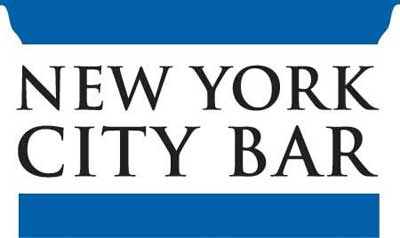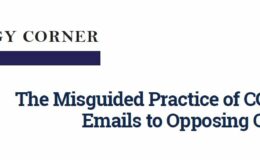
The Association of the Bar of the City of New York has issued Opinion 2015-3 regarding, “Lawyers Who Fall Victim to Internet Scams.”
The Opinion addresses the following:
– If you get an email solicitation that appears to be fake, “the best approach is to ignore such solicitations altogether.” A lawyer has no ethical duty to respond to an unsolicited email inquiry from a prospective client BUT… if the lawyer responds, certain ethical standards may be invoked.
– Lawyers have a duty (of competence) to do at least a Google search to confirm that this is not a “classic” or well-known internet scam. Stated slightly differently, a lawyer is required to exercise of reasonable diligence in identifying and avoiding internet scams. In short, do not depart from your usual protocols in opening new files.
– If scammed, a lawyer may turn over the documentation to law enforcement without violating a duty to the scammer (who was never an actual or true prospective client). But the lawyer must advise other clients if money was lost.
– A reminder that a bank can “clear” a check before it actually collects the money. It may take weeks or months to find out. And the bank may then seek the funds from the lawyer.
A few quick notes….
– This applies to NYC lawyers only however compare the Opinion to the ethics rules in your jurisdiction to weigh out whether it is persuasive guidance.
– The Florida Bar News wrote a May 1, 2015 article, “Con Men Try to Make You Their Mark” regarding similar concerns.
– In 2003, I had proposed, in a Florida Bar News article, that lawyers may want to Google their clients. At the time, this was actually viewed by some as invasive or being unnecessarily suspicious of your clients. Twelve years later, at least two jurisdictions indicate that a duty of competence requires it.


